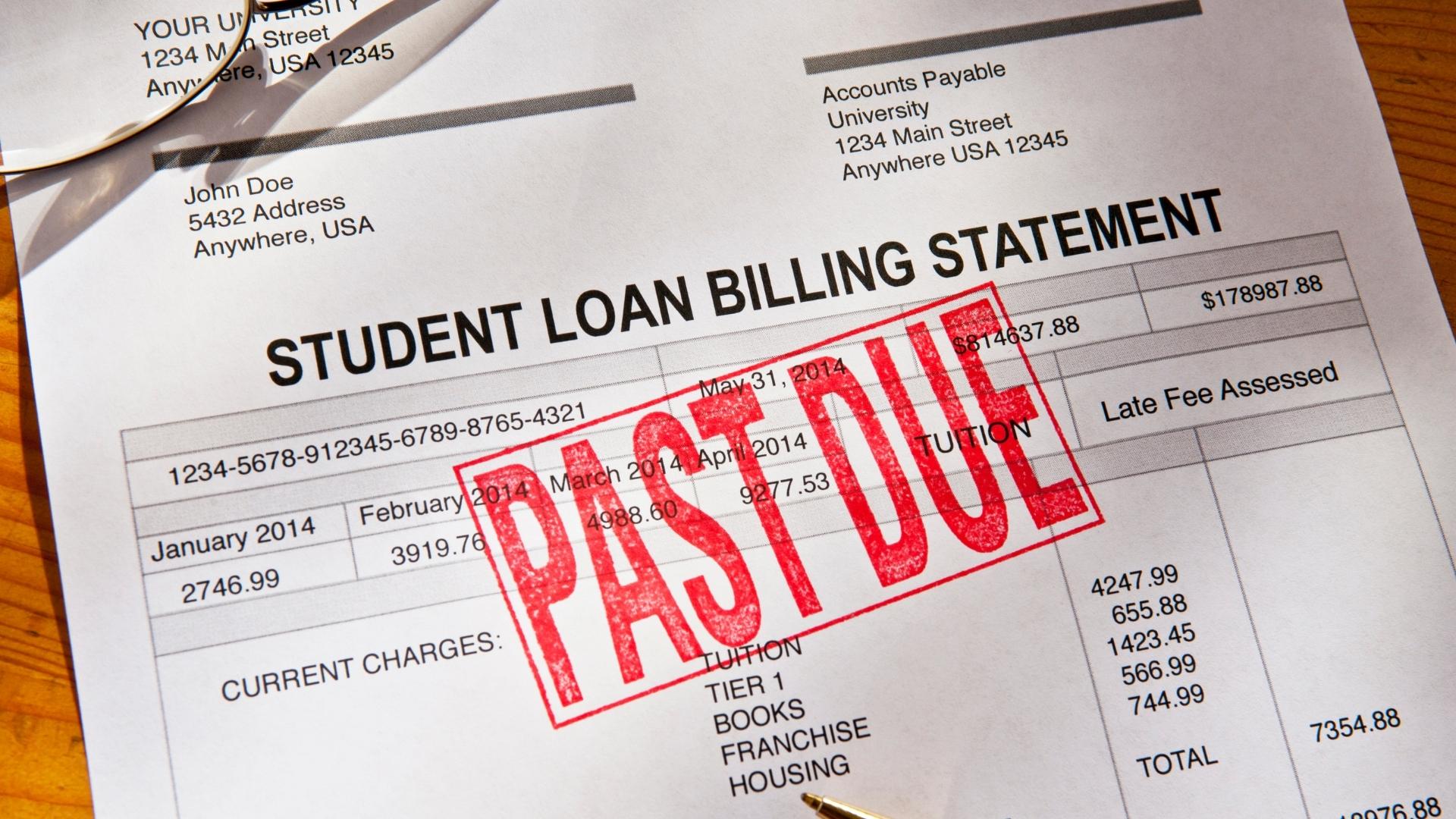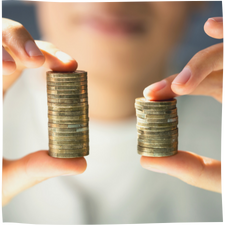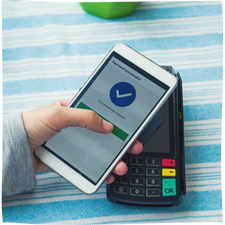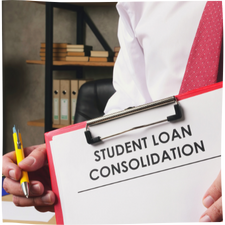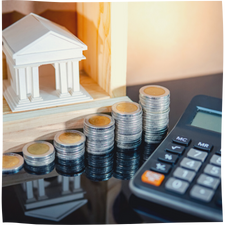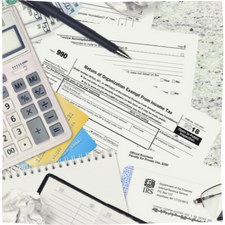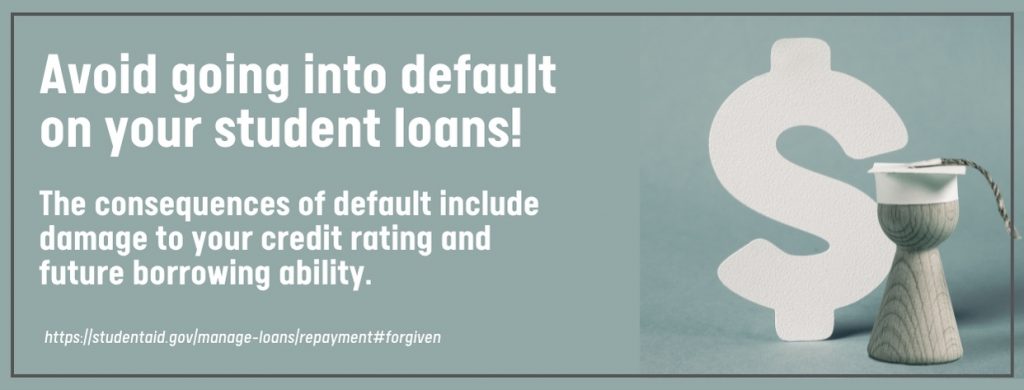Find Your Perfect School
Finally, after four years, you’ve graduated college and are ready to enter the corporate world. But wait a minute, here’s your diploma and student loan statement.
You may be looking at a payment of $28,950 at minimum (the average for student debtors), and you’re overthinking how you would pay this debt when you’re just starting out and not making enough money.
Fortunately, the federal government has established several student loan repayment options, including the Standard, Graduated, Extended, and Income-Driven Repayment Plan, to help pay off your student loan debt a little bit more bearable.
While these repayment plans are in place, you are still concerned about how you will actually pay off your student loans.
Additional Resource: How Many Years Will It Take Me To Pay Off My College Degree?
You can do a few things to pay your federal student loans faster! Today, we’ll review 10 useful ways to help you pay your student loan debts.
Plan a budget
Obtaining a degree is highly expensive, especially with today’s economic status. Currently, annual tuition has increased by an average of 8%. Students must cover additional costs, including accommodation and board, books, transportation, and other school fees.
While you can avail of federal student aid to help you reduce college costs, you’ll still incur debts to support your studies and college lifestyle. Intelligent school choices and budgeting techniques can help participants manage college fees and plan for the future.
By promoting wise financial management and deliberate spending choices, budgeting will help you manage your student debt. Using a budget can track your needless spending and identify and reduce it. Effective budgeting will help you avoid taking on loans or credit card debt by setting aside money for future plans and emergencies.
Although it may not seem urgent, you will graduate and have to begin making interest payments before long if you don’t pay back your student loans. Even though you might be given a six-month grace period before you must start repaying the loan, you will still be charged interest during this time. Thus, keeping an eye on your expenditures while still in school is beneficial.
Remember, college is not just about fun and creating memories. It’s a crucial part of your life that can determine your lifetime career. Learn to control your impulses early and be able to pay off student loans, or you’ll quickly give in to unnecessary spending and suffer later.
Consider Paying Higher Than The Minimum Payment
A student loan is like any other loan. Both federal and private loans will impose a number of the least amount borrowers can pay on due dates called “minimum payment.” The minimum payments are calculated on several variables, such as loan type, interest rate, and repayment plans.
Unlike late payments, advance or paying higher than the minimum will not entitle you to penalties or additional processing fees. Borrowers must be permitted to make extra payments and pay off their loans early without incurring additional costs for both federal and private student loans.
While not mandatory, making additional payments can lower the interest amount owed and the loan’s final cost. Typically, you can contact your loan servicer and request that the extra payment be split between your highest interest loan and the loan’s principal amount.
Paying back the loan directly from your paycheck can hasten the process. Making additional loan principal payments can also help lower the total interest you pay over the loan because most student loan interests are charged daily.
But how much should you tack on to the required minimum? You can add at least $50 more to the minimum needed payment. You may pay an additional $100 if you have a job that earns more.
You might pay off your debt a year earlier if you add an extra $50 a month to your regular $300 to $400 monthly payment. You can pay off your debt nearly three years earlier if you pay an extra $100 in the same situation.
Spend at least $50 more per month on student debt if possible. Even though it might appear insignificant, the additional funds have a significant impact. For debtors, especially those who desire to save and earn more in other aspects of their lives, being out of debt at least one year earlier has a discernible influence.
Make Payments While Still Attending School
It makes sense to make payments while you’re still in school, depending on the type of student loan. Federal and private student loans are frequently postponed until after graduation, so you are not obligated to make payments until then.
However, if you have unsubsidized federal student loans or private student loans, interest begins to accrue from the day of your loan disbursement and continues throughout the grace period. After graduating with federal loans, you’ll get a six-month grace period, and some private lenders offer that benefit.
Even paying the interest on student loans while in school can help you save money in the long run, develop responsible money management skills before you enter adulthood, and accelerate the repayment of student loans.
Paying your student loan while studying can also aid in credit-building. Credit is the capacity to borrow money with the assurance that you will be able to repay it. Students, unlike professional workers, lack considerable credit history. A student loan will help you build and maintain your credit score while still in college.
Furthermore, paying off student loans has advantages for both students and parents who are taking out loans to pay for a child’s education expenses, aside from helping students develop excellent financial habits. You’ll have reduced capital interest, you can pay student loans faster, and you can deduct your student loan interest from your taxes.
Sign up for Automatic Debit
Auto-debit is essentially a method for automatic payments. You won’t even need to set a reminder on your calendar or be concerned about missed payments if you have an auto-debit system in place, which makes it one of the best options to pay student loans for someone who is preoccupied. Since you won’t skip any payments, you won’t also default.
In addition, if you decide to sign up for the automatic payment plan, many lenders will lower your interest rate. The discounts, however, are in small amounts; but a little can go a long way. Even if your service provider doesn’t offer a discount, you should still consider using auto-debit.
Before going on auto debit, check with your student loan page to see if they have this payment option because not all loan servicers provide this service.
Although setting up auto-debit allows you to put student loans on hold temporarily, it does not imply that you should do so and forget about them. Whatever the reason for your late payments, your lender will charge you interest.
Some people, especially those with zero money management skills, tend to spend their paychecks as soon as they receive them. These people will also greatly benefit from auto debit payment plans. Soon enough, you’ll check the student loan balance and realize that you’ve made some progress.
Most borrowers’ biggest concern is whether or not they can trust their lenders. There’s no guarantee to this. Trusting any financial services organization with access to your money comes with risks. Thankfully, there are steps you can take to lessen those risks.
Don’t deposit too much money in your auto-pay account, and don’t link your checking account to a savings account. Instead, create a checking account only for automating payments.
Consider Student Loan Refinancing
Student loan refinancing means that a private lender will pay off your current loans and give you a new loan with new terms. The most significant advantage of student loan refinancing is the possibility of substantially lowering your loan’s interest rates.
You might save a few dollars per month or hundreds of dollars annually by refinancing your student loans. What you’re currently paying and what you might pay when you refinance will determine how much you can save.
However, you should also remember that refinancing student loans frequently necessitates a strong credit rating. The good news is that some private lenders consider borrowers with low credit scores. But there’s a catch.
You might require a cosigner if you don’t fulfill the credit and income requirements to refinance your student loans. Finding a cosigner prepared to assume responsibility for your student loan debt can be challenging because not all lenders permit you to relieve a cosigner from their obligation.
If you qualify, your federal student loans will become private loans after refinancing. However, you’ll lose access to federal benefits and initiatives linked to federal student loans.
Everything comes with risk. While you can halt your payments with many reputable refinancing providers if you lose your job or have another financial hardship, the delay and forbearance choices provided by even top refinancing firms are probably not as good as those offered by the government.
Related Resource: The 10 Most Affordable Online Bachelor’s Degree Programs
Consider Student Loan Consolidation
Consolidating student loan repayment can be made more accessible and potentially less expensive. You pool all your student debts, obtain a sizable consolidation loan, and use that money to repay the others. You are now only required to make one monthly payment to one lender.
The Direct Loan Consolidation program has several benefits, not the least of which is that it keeps you eligible for income-based repayment plans, including PAYE (pay as you earn), REPAYE (repay as you earn), ICR (income-contingent repayment), and IBR (income-based repayment).
By consolidating your debt, you can modify the terms and minimize your monthly payment. Several other repayment options are available with consolidation, most of which increase the loan’s length from 10 to 30 years. A more extended loan period can reduce the monthly payment by as much as 50%, making it more manageable as you start your career. It is also feasible to obtain lower interest rates, resulting in lower monthly payments.
If you have difficulty making monthly federal student loan payments, this should help you avoid default. Once you default, your credit score will suffer greatly and reflect on your credit report for seven years.
Lastly, if you set up an automated debit on top of consolidating your student loan, certain banks will lower your interest rate. After 36 months of on-time payments, a select few provided 1% interest rate savings for the duration of the on-time payments. You now have the chance to pay off your college loans more quickly.
Additionally, you should know that private student loans are not eligible for consolidation.
Apply for a Student Loan Forgiveness Program
Student loan forgiveness programs are probably one of the best ways to pay your student loan in 2022. The federal government provides these programs for borrowers with federal student loans and discharges or forgives them from their student loans.
Almost all federal student loans, including graduate loans, direct subsidized or unsubsidized loans, and parent PLUS loans, are eligible for forgiveness. A student with a private student loan does not qualify for this program.
Here are the most popular student loan forgiveness programs.
- Public Service Loan Forgiveness: After completing ten years of admissible payments, government and nonprofit employees may apply for federal student loan forgiveness through this program.
- Teacher Loan Forgiveness: Teachers who qualify are full-time teachers who have worked for at least five years in low-income elementary and secondary schools. This forgiveness program grants up to $17,000 in federal student loan debt.
- Borrower defense to repayment: Students who can prove that their colleges have cheated on them can be relieved from paying their student loans. Students may need to seek debt relief and provide evidence of how the institutions deceived them or committed other wrongdoing.
- Disability Discharge: Fully and permanently handicapped borrowers are eligible for this student loan forgiveness program. The federal government will forgive these borrowers’ Federal Family Education Loans, Direct Loans, and Perkins Loans.
- Income-driven Repayment: Student loan borrowers who do not belong to any of the four forgiveness programs above and are enrolled in one of the four types of IDR can apply. By reducing their monthly payments according to their income and family size, these forgiveness program help borrowers avoid defaulting on their loans.
Try the Debt Avalanche or Snowball Method
If you can’t apply for any of the programs offered by the government or you’re not qualified for refinancing, you can try the debt avalanche method. This might seem confusing, but it’s not. You’ll have to start with paying your obligation at a minimum and gradually increase and pay the highest interest rate.
Once the student debt is completely paid off, you should add the money you were paying toward it to the minimum payment you made on a loan with the next-highest interest rate. This practice will be carried out until all your loans have been fully repaid.
The same approach is applied to the debt snowball method. The difference is that instead of starting from the highest interest, you’ll start with the lowest student loan interest. But this student loan approach will not save you as much money as the avalanche approach. It will, however, help you win some early victories as you pay off lower-balance loans.
These strategies only apply if you have various loans. You can’t use it if you refinance or combine your loans into one new one.
This might be a terrific strategy to quicken your debt payback and save money on interest if you can afford extra payments and you’re okay with maintaining numerous loans and monthly payments.
Take Advantage of Tax Deductions and Credits
One of the easiest strategies to quickly pay off student loans is by taking advantage of tax deductions and credits. This will reduce your monthly taxable income, significantly reducing your monthly loan repayment amount.
When paying for any loan, you are not only paying the principal amount you’ve borrowed. You’ll also pay interest rates, which can break banks, depending on the terms and conditions of your student loans. Using the student loan interest tax deduction, you subtract the interest paid from any taxable income, allowing you to pay less in federal taxes.
Let’s imagine, for illustration, that your income for the prior year was less than $65,000. The maximum interest rate deduction is available to you. This deduction is decreased from $65,000 to $80,000.
This deduction is available even if you don’t itemize. Consequently, you may also claim the standard deduction.
However, there are instances where parents are the ones who take out loans for college funds. If so, your parents would need to record the deduction on their tax return if they took out the student loan in their names. However, neither of your parents can claim the deduction if they have listed you as a dependent.
Finally, if you are paying down your student loans while enrolled full-time in school, you can also claim this deduction.
Use “Extra” Money and do Side Hustles
If you receive a raise, a bonus for refinancing your student loans, or another financial windfall, set aside at least some of it towards your debt. Consider allocating the additional funds: 20% for personal/material things, 30% for savings, and 50% for student loans.
If you’re yet to find a job, better find one that offers student loan repayment benefits. Some employers provide this benefit to their employees, especially big companies. According to some CEOs, employees with lesser worries are more efficient in the workplace.
You can also do side hustles to pay off your student loans. For example, you can start a small online business, rent out your extra room or car, or pin down a freelancing job on the side.
Consider establishing guidelines for yourself, such as applying any $5 or $10 bills you get to your debts. You may set objectives and regulations for your savings by using several money-saving applications.
You can also request cash in place of gifts instead of presents. Ask those family members or friends closest to you to give you money instead of a gift for your birthday or graduation. Write a kind letter to each of your loved ones and explain that you prefer cash to gifts if you want to do this respectfully. Remember to mention that you’ll use the funds to reduce your student loan burden.
Frequently Asked Questions
What will happen if I am unable to pay my student loan?
The repercussions of not making student loan payments are rather severe. It’s exceedingly difficult to discharge or decrease your student loan debt by filing for bankruptcy, unlike most forms of borrowing. The federal government will use its immense authority to make your life unpleasant until you start paying your student loans.
Listed below are just a few consequences of not repaying your student loans:
- You’ll have a low credit score, which will significantly affect your life.
- Instead of slowly reaching financial freedom, you’ll get deeper into debt.
- You’ll not be entitled to a tax refund.
- The government has the right to seize up to 15% of your take-home salary.
- You’ll affect your consigner.
What are the types of Federal Student Loan Repayment Plans?
There are four alternatives for repaying federal student loans. However, depending on your objectives, the conventional or income-driven repayment plan would probably be your best option.
- Standard Repayment: This repayment option plan is the most preferred option for students willing to pay for at least 10 years.
- Income-Driven Repayment: This repayment plan lets you prolong your repayment period by 20 or 25 years while tying the amount you pay to a portion of your income. If you’re having trouble making your monthly payment and need something more reasonable, IDR is the ideal option.
- Graduated Repayment: This gradually increases the amount you pay every two years for 10 years.
- Extended Repayment: For 25 years, this repayment plan begins with low payments that grow every two years.
Are my student loans cancelable?
The following situations may result in the cancellation of federal student loans:
- When you enroll in a college or within 90 days of withdrawing, your college shuts down.
- After you withdrew, your school was supposed to refund you or your lender, but they never did.
- Someone stole your identity and it was used to take out a student loan.
- The student loan borrower dies.
- You suffer a total and permanent disability.
Which type of loan—federal or private—is preferable?
Students can use federal and private student loan programs as financial aid to help them cover the cost of higher education. Generally speaking, before looking into private student loans, you should complete your FAFSA and use financial aid from the school, such as grants, scholarships, and other federal loan options.
What are the differences between an Unsubsidized Loan and a Federal Direct Subsidized Loan?
A Direct Subsidized Loan is one which the U.S. The Department of Education pays the interest when the student is enrolled at least half-time, during a grace period, and during times of allowed deferment.
The borrower’s responsibility is the interest incurred on Unsubsidized Direct Loans throughout the grace period, in-school term, post-school deferral, or both.
Key Points to Ponder
- There are practical strategies to make your student loan repayment more effective and guarantee that you make the most of each payment.
- If you are devoted and persistent, you will be able to see the silver lining though it can take years to see an impactful outcome from paying off student loans quickly.
- Paying more than the required minimum each month is the most effective approach to paying off student loans earlier.
- The more you put toward your debts, the more you’ll save on interest, and the faster the sum will be paid off.
Before you go: The 15 Best Summer Jobs for College Students
